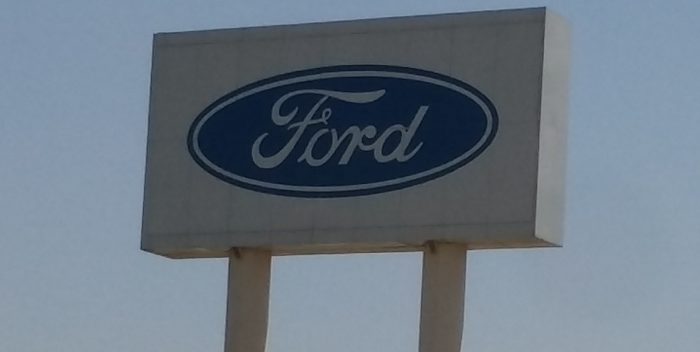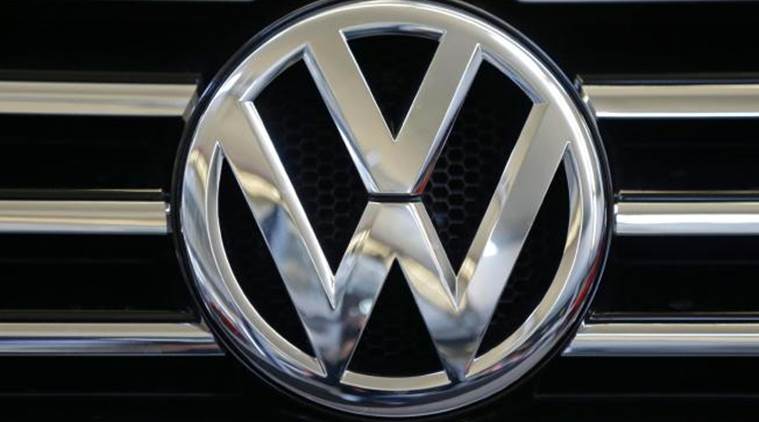Now Reading: Ford is no longer planning to sell Chinese-made vehicle in the United States
-
01
Ford is no longer planning to sell Chinese-made vehicle in the United States
Ford is no longer planning to sell Chinese-made vehicle in the United States

Ford Motor has abruptly ended a plan to sell a Chinese-made small vehicle in the United States due to the prospect of higher U.S. tariffs, the head of the automaker’s North American operations stated Friday.
The automaker’s decision follows the U.S. President Donald Trump’s escalation of a trade battle with China, cautioning to impose duties on another $200 billion in Chinese goods.
The Trump administration has already enforced duties on Chinese-made vehicles of up to 25 percent. Trump is independently evaluating a proposal to enforce tariffs on all imported vehicles on national security grounds.
The Chinese-made Focus Active, which Ford calls a crossover, would have been a niche vehicle for its home country, and the decision to abandon strategies to launch it in the U.S. market next year will not cost jobs or have a major impact on the automaker’s U.S. sales, Ford North America chief Kumar Galhotra informed reporters during a conference call on Friday.
“It basically boils down to how we deploy our resources,” Galhotra stated. Given the prospect of high tariffs, the Focus Active’s prices in the U.S. “would be substantially higher.”
Asked when the decision was taken, Galhotra stated, “we just made it. Literally.”
Strategies to build and sell the Focus Active in Europe and China will move ahead, Galhotra stated.
Ford’s choice to abandon the Focus Active contrasts with the effort by competitor General Motors to seek an exemption to recent, 25 percent U.S. tariffs on its Buick Envision utility vehicle.
The Envision is a larger vehicle compared to the Focus Active, with a starting cost of about $35,000. Ford had not set a U.S. price for the compact Focus Active, however it would have competed in a segment where prices begin at around $20,000, leaving less profit margin to absorb extra import duties.
Ford and its competitors also are closely observing the outcome of negotiations toward a revised North American Free Trade Agreement, which continued on Friday. A Ford representative refused to comment on proposed changes to NAFTA auto trade regulations, and Galhotra did not address them.
Stay Informed With the Latest & Most Important News
Previous Post
Next Post
-
 01Polestar Boss Says It’s Time To Outrun BMW M And Mercedes-AMG
01Polestar Boss Says It’s Time To Outrun BMW M And Mercedes-AMG -
 02Spy Shots: 2027 Mitsubishi Pajero Spotted in Testing Ahead of Possible U.S. Return
02Spy Shots: 2027 Mitsubishi Pajero Spotted in Testing Ahead of Possible U.S. Return -
 032026 Toyota Hilux EV: A Powerful Truck with Silent Torque
032026 Toyota Hilux EV: A Powerful Truck with Silent Torque -
 04Spy Photos: VW ID. Polo GTI Goes Electric with 223 HP and 280 Miles of Range
04Spy Photos: VW ID. Polo GTI Goes Electric with 223 HP and 280 Miles of Range -
![2027 Mercedes-Benz S-Class Debuts with V8 Engine [Photo Gallery]](https://speedlux.com/wp-content/uploads/2026/01/2027-Mercedes-Benz-S-Class-33-155x125.jpg) 052027 Mercedes-Benz S-Class Debuts with V8 Engine [Photo Gallery]
052027 Mercedes-Benz S-Class Debuts with V8 Engine [Photo Gallery] -
 06The Controversial Ford Voodoo V8 That Was Killed Off Too Early
06The Controversial Ford Voodoo V8 That Was Killed Off Too Early -
 07Hyundai Palisade’s Breakout Year Shows How Quickly the Market Can Turn
07Hyundai Palisade’s Breakout Year Shows How Quickly the Market Can Turn


![2027 Mercedes-Benz S-Class Debuts with V8 Engine [Photo Gallery]](https://speedlux.com/wp-content/uploads/2026/01/2027-Mercedes-Benz-S-Class-33-700x394.jpg)










































